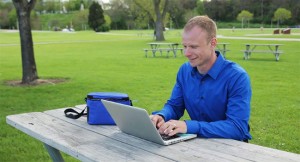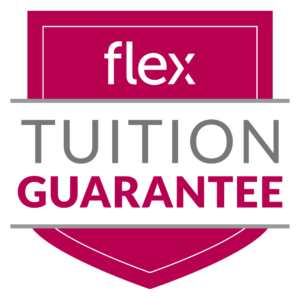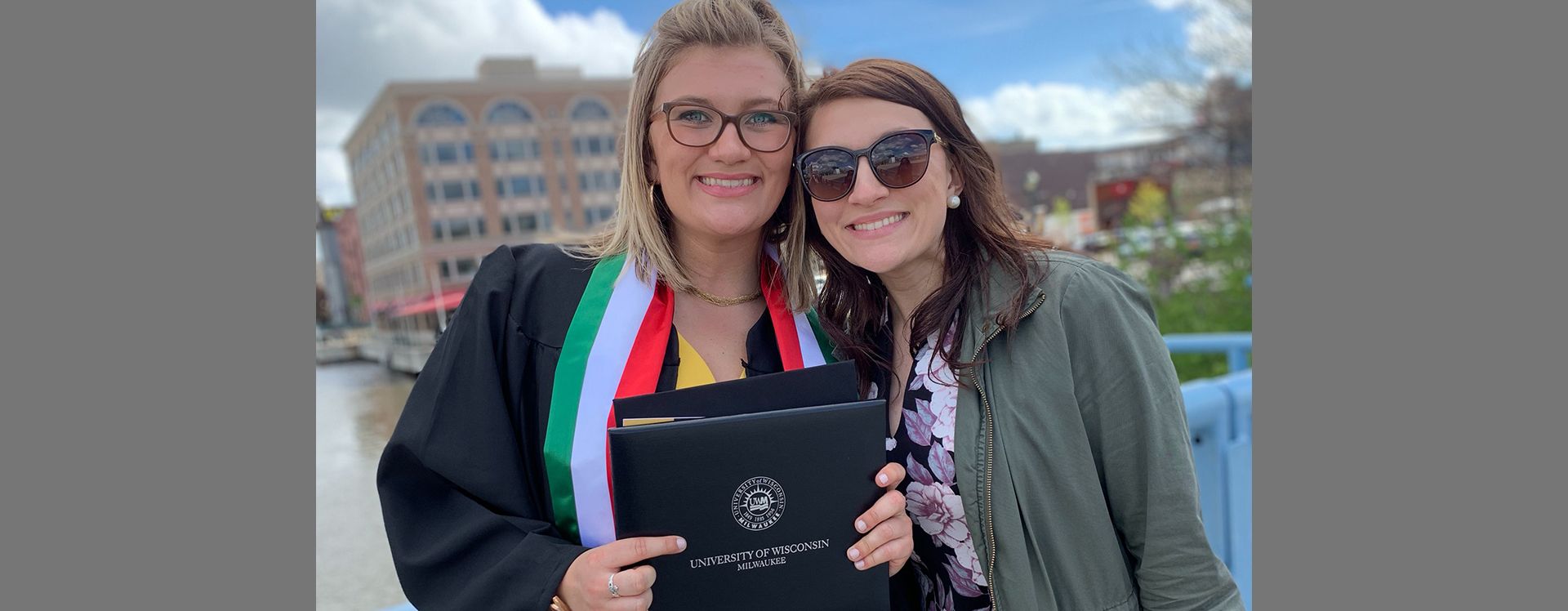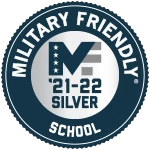Download a UW Flexible
Option Degree Guide
Overview
Do you want a bachelor’s degree, but need to complete your general education requirements first? Here’s your chance to earn the credits you need at your own pace, on your schedule, building on knowledge you already have.
The Associate of Arts and Sciences (AAS) degree is the foundation for more than 200 college majors. All University of Wisconsin four-year institutions, including UW-Madison, consider this AAS degree to satisfy the university-wide general education breadth requirements. An associate degree also signals to employers that you have the advanced skills in communication and critical thinking necessary to succeed in today’s workplaces.
Students Who Need to Complete General Education Requirements
For students with transferable college credit who would like to earn their bachelor’s degrees (whether through a UW Flexible Option program or any other University of Wisconsin program), the courses offered by this flexible Associate of Arts and Sciences degree can be used to fulfill the general education requirements of the degree.
Who Should Apply

The UW Flexible Option is especially designed for self-motivated nontraditional students. The competency-based and self-paced format of the UW Flexible Option fits the schedules of students who must balance work and family responsibilities with educational goals. Because the UW Flexible Option competencies and assessments are delivered online, students have the opportunity to learn when and where they choose.
This self-paced program is ideally suited for:
- Motivated, disciplined self-starters who can work independently
- Students who may have completed some college-level work
- Adults with valuable professional work experience
- Those who recognize the value of a University of Wisconsin degree
About the University of Wisconsin-Milwaukee
Accreditation
University of Wisconsin-Milwaukee is accredited by the Higher Learning Commission of the North Central Association of Colleges & Schools.
Administrative Note:
Effective July 1, 2018 the 13 two-year campuses formerly known as University of Wisconsin Colleges were integrated as branch campuses with seven of the University of Wisconsin System’s four-year comprehensive or research institutions. As part of this restructure, UW Flexible Option courses offered through UW Colleges, including the Associate of Arts and Science (AAS) degree, transitioned to UW-Milwaukee.
Curriculum
To earn an Associate of Arts and Sciences degree, students must complete a total of 60 credits across the categories described below. If you have already completed equivalent courses, those credits may be eligible for transfer. At the UW Flexible Option, you are not locked in to traditional semesters or test dates. If you are able to master the material more quickly, the UW Flexible Option gives you the opportunity to prove your mastery through an assessment and move ahead faster.
Click on the following degree areas to learn the requirements and course offerings in that category.
Core Requirements | 6 Credits
You must satisfy 3 credits in English and 3 credits in mathematics through the following courses, placement test scores, or transfer credit. You need only to complete one of the below math options.
| Number | Title | Credits |
|---|---|---|
| CGS MAT 102x | Mathematical Literacy for College Students II | 3 |
| CGS MAT 105x | Introduction to College Algebra | 3 |
| CGS ENG 102x | Critical Writing, Reading, and Research II | 3 |
Fine Arts & Humanities | 9 Credits
You will acquire knowledge of ideas, beliefs, and abiding concerns pertaining to the human condition as represented in literature, the arts, and cultural history. Choose a minimum of 9 credits, including at least one humanities course and at least one arts course.
| Number | Title | Credits |
|---|---|---|
| PHILOS 204X | Introduction to Asian Religions | 3 |
| CGS ART 118x | Digital Imaging and Design | 3 |
| CGS REL 100x | Introduction to the Study of Religion | 3 |
| CGS CTA 103x | Introduction to Public Speaking | 3 |
| CGS SPA 102x | Second Semester Spanish | 4 |
| CGS SPA 101x | First Semester Spanish | 4 |
| CGS GSW 102x | Women’s Voices | 3 |
| CGS MUS 173x | Music Literature & Appreciation | 3 |
| CGS MUS 273x | Jazz History & Appreciation | 3 |
| INFOST 120X | Ethical Issues in Information Technology | 3 |
Mathematical & Natural Sciences | 11 Credits
You will learn about the workings of the physical universe, the functions of numerical data and the solving of problems through mathematical and statistical computations, as well as the application of the scientific method in laboratory and experimental work. Choose a minimum of 11 credits in at least two different scientific disciplines and one laboratory science course.
| Number | Title | Credits |
|---|---|---|
| CGS ANT 107x | Introduction to Biological Anthropology | 4 |
| CGS MAT 215x | Elementary Statistics | 3 |
| CGS HES 209x | Nutrition & Weight Control | 3 |
| CGS GEO 125x | Physical Geography (Lab Science) | 5 |
| CGS CHE 124x | Applied Chemistry & Society (Lab Science) | 4 |
| CGS BIO 190x | Introduction to Environmental Sciences | 3 |
| CGS BIO 141x | Heredity | 3 |
Applied Scholarship | 3 Credits
Students must engage with academic material in a manner that is different from what is typical in a first or second-year college course. Students must spend significant time on purposeful tasks, receive and respond to substantial feedback, and engage in interaction with instructors and other students. Choose a minimum of 3 credits.
| Number | Title | Credits |
|---|---|---|
| CGS INT 281x | Deviant Minds | 3 |
| CGS REL 100x | Introduction to the Study of Religion | 3 |
Cultural Diversity | 3 Credits
You will learn about a variety of diversity issues and problems. Courses fulfilling this requirement will have a substantial emphasis on cultural diversity within the United States. Complete a minimum of 3 credits. These courses may also satisfy another breadth category.
| Number | Title | Credits |
|---|---|---|
| CGS CTA 210x | Introduction to Intercultural Communication | 3 |
| CGS HIS 102x | History of the United States From the Civil War to Present | 3 |
| CGS MUS 273x | Jazz History & Appreciation | 3 |
Electives
You may choose any of the below courses, or from any of the other categories, to complete enough courses to arrive at the 60 credits required to earn your Associate of Arts & Sciences degree.
| Number | Title | Credits |
|---|---|---|
| CGS MAT 075x | Math Success Strategies | 3 |
| CGS ENG 101x | College Writing and Critical Reading | 3 |
| CGS BUS 101x | Introduction to Business | 3 |
| CGS BUS 201x | Introductory Accounting | 4 |
Note: Students who started the program in August 2021 or earlier may see the degree requirement categories here.
Please visit our general education & residency requirement policy page to learn more about the specific requirements to earn this degree.
Faculty
It’s not just what you’re learning that’s important, it’s also who you’re learning from that matters. The AAS program is taught by a diverse range of expert Universities of Wisconsin faculty. To learn more about the faculty, check out this page.
Tuition

The UW Flexible Option offers working adults – like you – a more affordable way to finish a degree. Your coursework takes place in subscription periods – rather than semesters. These subscription periods start every single month, and are approximately 12 weeks long.
Instead of paying based on your course or credit load, you choose between two flat rate tuition plans. Our unique subscription period structure and flat-rate tuition model means you are in control of both your schedule and your cost. Financial Aid and the Aspire Scholarship are available for this program. We also encourage speaking with your employer about workplace tuition assistance.
- All-You-Can-Learn Option: Choosing this option allows you to enroll in as many courses as you have time for within the subscription period for a flat tuition rate of $2,250. You can add additional courses in your subscription period if you finish others early.
- Single Course Option: You may also decide you would like to focus on just one course at a time. The tuition for this is $1,125. In this option, you are not eligible to add additional courses during your subscription period if you finish the first one early. In this case, you must wait until your next subscription period to add additional courses.
| Subscription Option | Courses you can take | Tuition |
| All-You-Can-Learn | 2 or more | $2,250 |
| Single Option | 1 | $1,125 |
You can switch back and forth between these tuition options with each new subscription period. For example, perhaps over the summer you do the Single Course option because your family is home on summer break, but once the kids go back to school in the fall you switch to the All-You-Can-Learn option.
Are there any additional fees? There are no segregated fees with this program. However, your tuition does not include the cost of textbooks or other special materials that may be required for individual courses.
Admission
Finishing your associate’s degree is closer than you think! Schedule an advising call at 608-800-6762 or contact us at flex@uwex.wisconsin.edu.
Minimum Academic Requirements
Candidates for the Associate of Arts and Sciences degree must have a high school diploma, GED, or High School Equivalency Diploma (HSED). Students with transferable college credit should have a cumulative GPA of 2.00 or higher. Students below a 2.00 will be evaluated as part of our holistic admissions review.
NOTE: Transfer credit will be awarded from degree-granting colleges or universities with institutional accreditation from an accrediting organization recognized by the Council for Higher Education Accreditation (CHEA). Non-CHEA approved institutional accreditors recognized by the Department of Education will be considered on a case-by-case basis and transfer credit allowed if appropriate based on the quality, comparability, and applicability of the coursework. Schools with programmatic accreditation may be evaluated for transfer if the accreditor is recognized by CHEA and the relevant coursework falls within the accreditor’s area of specialization.
How to Apply
- You may apply up to five months in advance of your desired start date. See Steps to Apply.
- If previously enrolled in Flex, please review our returning student admissions process.
Note: On the e-application, this program is labeled ‘Liberal Arts – Associate Program.’
Transfer Credit Evaluations
- Transfer credit is awarded for college-level coursework completed at regionally accredited institutions. See Transfer Credit Evaluations for more information.
- Learn more about how credit by exam and military coursework may apply towards your degree.
Still have questions? Check out our Admission FAQ page.






Social Sciences | 9 Credits
You will learn about the nature and dynamics of human social systems and how and why people organize their lives and resources. Choose a minimum of 9 credits in at least two different disciplines.
Learn More